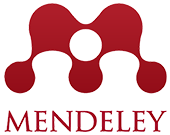HUBUNGAN PERCAYA DIRI TERHADAP PRESTASI BELAJAR SISWA SMK NEGERI 4 PANDEGLANG TAHUN AJARAN 2020/2021
Abstract
Abstract
This research is motivated by the lack of self-confidence of students caused by low learning achievement. This study aims to determine the effect of self-confidence on student achievement in class X Software Engineering Expertise Program at SMKN 4 Pandeglang. This study uses a quantitative approach. The population of this study was all students of class X Software Engineering Expertise Program at SMKN 4 Pandeglang as many as 104 students. The sample that the author uses is a saturated sampling technique. The tools used for data collection are observations, questionnaires and documentation. Test the validity of the instrument using the validity with a significant level of 5%. The reliability test of the confidence scale instrument was calculated using the Cronbach Alpha formula. Data analysis and hypothesis testing used descriptive analysis using a Likert scale, and a simple linear regression technique had a significance value of 5%. The results showed that self-confidence had a positive and significant effect on student achievement. This is indicated by a significance of 0.000 (p < 0.05) and the regression line equation Y = 34.118 + 0.484X, which means that if self-confidence is increased by 1%, learning achievement will increase by 0.484. The conclusion of this study is that self-confidence can positively affect student achievement. There is an effective contribution of the self-confidence variable to student achievement of 19.1% and the remaining 80.9% is influenced by other factors. Based on the results of research on class X students of the Software Engineering Expertise Program at SMKN 4 Pandeglang, the percentage of confidence and student achievement in the majority of students are in the fairly good category.
Keywords: Confidence, Student Achievement
Keywords
Full Text:
PDFReferences
Arikunto, S. 2013. Prosedur Penelitian: Suatu Pendekatan Praktik. Jakarta: Rineka Cipta.
Andi Supangat. 2011. Statistik Dalam Kajian Deskriptif, Inferensi, dan Nonparametrik. Jakarta: Kencana Prenada Media Group.
Aprillia, Kurnia Rakhma. 2017. “Upaya Meningkatkan Sikap Percaya Diri dan Prestasi Belajar IPS Melalui Strategi Inside Outside Circle dengan Menggunakan Media Kartu Gambar.” Jurnal Sains Sosial dan Humaniora. 1(2): 103-110.
Depdiknas .2003. Undang-undang RI No.20 tahun 2003. tentang sistem pendidikan nasional.
Fatimah, E. 2010. Psikologi Perkembangan (Perkembangan Peserta Didik). Bandung: Pustaka Setia
Ghufron & Risnawita. 2012. Teori-Teori Psikologi. Yogyakarta: Ar-Ruzz Madia. Hamdani. 2017. Strategi Belajar Mengajar. Bandung: Pustaka Setia
Lauster. 2015. Tes Kepribadian (terjemahan D. H. Gulo). Jakarta: Bumi Aksara.
Maesaroh, Siti. 2013. Peranan Metode Pembelajaran Terhadap Minat Dan Prestasi Belajar Pendidikan Agama Islam. Jurnal Kependidikan. Vol. 1
Muhibbin Syah.2010.Psikologi Pendidikan dengan pendekatan baru.Bandung:PT Remaja Rosdakarya
Pratiwi,Noor Komari. 2015. Pengaruh Tingkat Pendidikan, Perhatian Orang Tua, dan Minat Belajar Siswa Terhadap Prestasi Belajar Bahasa Indonesia Siswa SMK Kesehatan Di Kota Tangerang. Jurnal Pujangga Volume 1, Nomor 2, Desember
Purwanto. 2011. Evaluasi Hasil Belajar. Yogyakarta: Pustaka Pelajar
Risnawati. 2018. Pengaruh Lingkungan Keluarga terhadap Prestasi Belajar Siswa pada Mata Pelajaran Ekonomi (Survey pada Siswa Kelas X di SMAN 7 Tasikmalaya).
Rakhmat, Jalaludin. 2015. Psikologi Komunikasi. Bandung: PT. Remaja Rosdakarya Offset.
Setiawan, F., & Kartika Dewi, A. 2014. Pengaruh Kompensasi dan Lingkungan
KerjaTerhadap Kinerja Karyawan Pada CV. Berkat Anugrah. Ejurnal Manajemen Universitas Udayana, 3
Suciati,Wiwik. 2016. Kiat Sukses Melalui Kecerdasan Emosional dan Kemandirian Belajar. Bandung: Cv Rasi Terbit
Sudjana, Nana. 2011. Dasar-dasar Proses Belajar Mengajar. Bandung: Sinar Baru Algensindo.
Sugiyono. 2016. Metode Penelitian Kuantitatif, Kualitatif dan R&D. Bandung:PT Alfabet.
Sugiyono. 2011. Metode Penelitian Kuantitatif, Kualitatif dan R&D. Bandung: PT Alfabet.
Sugiyono. 2015. Metode Penelitian Kuantitatif, Kualitatif dan R&D. Bandung:PT Alfabet.
Widiarsih, Tasya. 2016. Pengaruh Minat Belajar dan Lingkungan Sekolah Terhadap Prestasi Belajar Akuntasi Perusahaan Jasa Siswa Kelas X Akuntasi SMK Muhammadiyah Wonosari Tahun Ajaran 2016. Yogyakarta: Universitas Negeri Yogyakarta.
DOI: http://dx.doi.org/10.30870/jpbk.v8i2.24584
Refbacks
- There are currently no refbacks.
Indexed By

.png)









1.png)